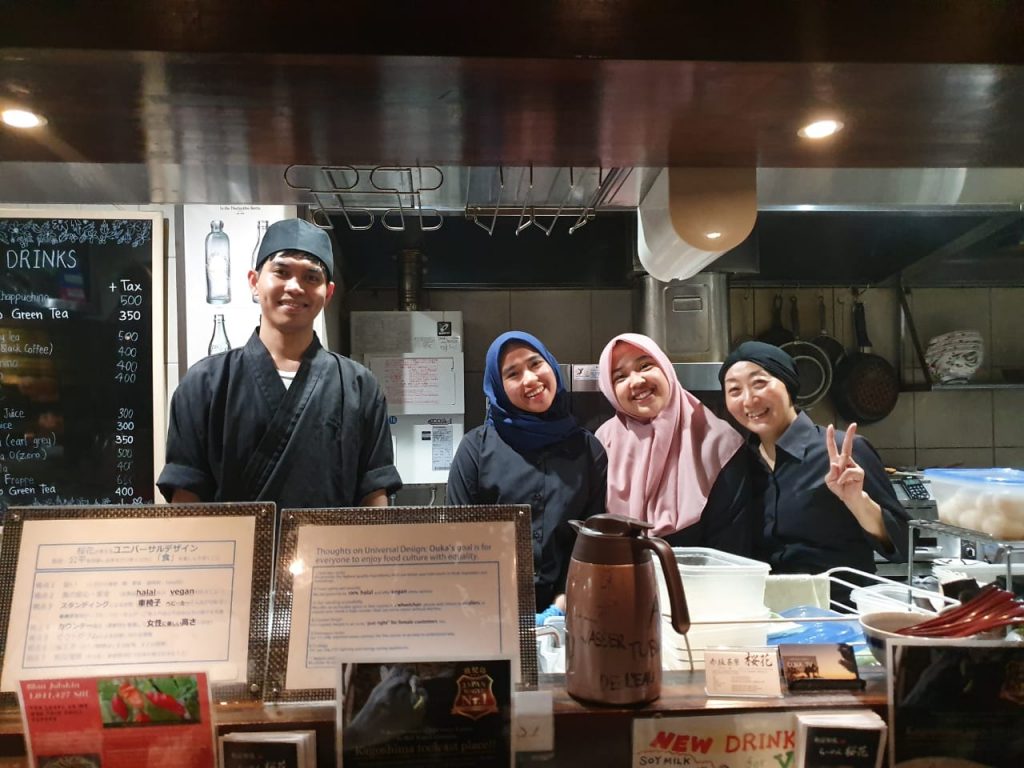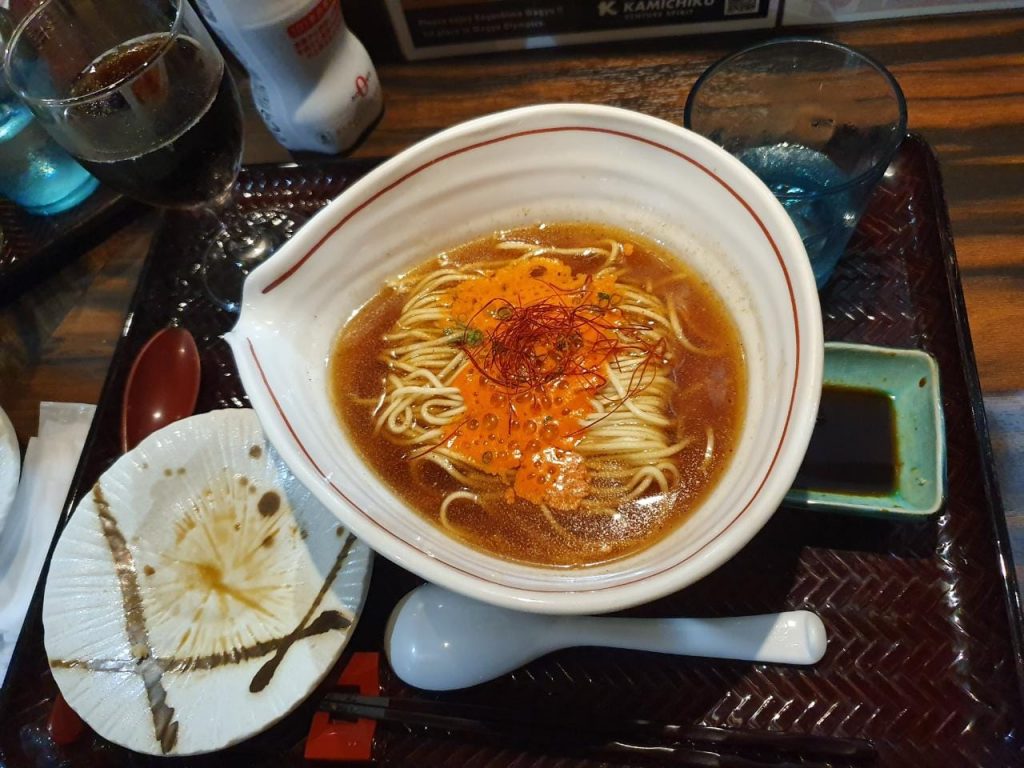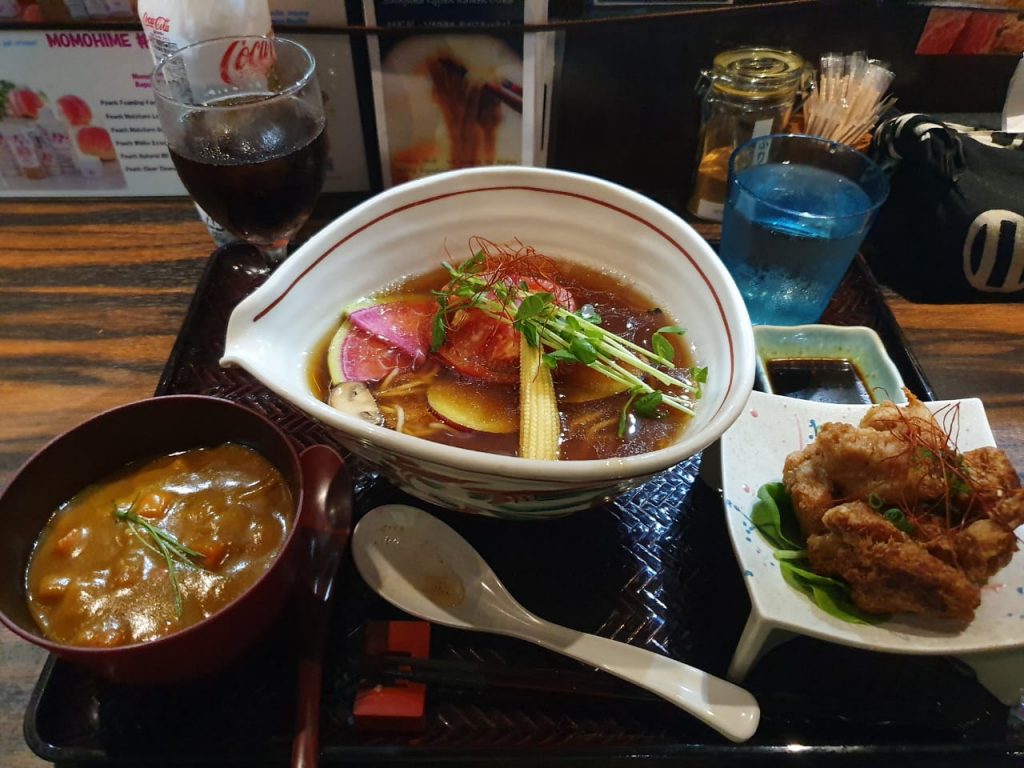





Aseel Bashraheel & Hala Tashkandi Jeddah
Muslim athletes and tourists in Tokyo’s 2020 Olympic Games no longer need to worry about finding halal food in the capital.
Japan is equipped to take on Muslim tourists with plenty of halal restaurants in its cities, and it has been aware of the community’s needs since 2013.
According to “We Are Tomodachi,” an official Japanese magazine established by the government to educate the world about the country, by 2013, four companies received halal certifications to serve dishes.
Since then, that number has rapidly increased to 180 halal establishments, including fine-dining restaurants that are serving traditional Japanese dishes.
Muslim students are also being accommodated. In 2014, Kanda University of International Studies opened Shokujin cafeteria, which is certified by the Nippon Asia Halal Association.
Even popular curry chain Curry House CoCo Ichibanya went halal in 2017, opening its halal Akihabara branch for travelers from around the world.
The restaurant said: “As people of different religions and cultures visit Japan, we wanted to develop a restaurant where Muslims could enjoy meals free from concern.”
Although they did not find it easy procuring some ingredients, they said that their experience with the halal Akihabara would enable them to expand even further.
Japanese wagyu beef, which has become a hit in the Arab world due to its rich taste and tenderness, is also being served halal in its country of origin. Halal Wagyu Yakiniku Panga in Tokyo’s Taito ward branched out of an already accomplished establishment to accommodate halal consumers and to grow the restaurant’s “food culture.”
Sung Gi Hong from Panga told Arab News where it all started: “My sister worked in Indonesia between 2015 and 2017 and when she asked her Muslim friends in Indonesia to come to Japan, they said there was nothing for them to eat because it is difficult to find halal restaurants in Japan.
“When we heard this, we thought it was sad because when we travel we want to have local food, but Muslims who come to Japan have trouble finding places where they can eat.”
The introduction of halal food also allowed the business to show the world the culture of Yakiniku, which is based on Japanese and Korean fusion cuisine turned halal, said Hong.
The restaurant chain has been running since 1999, and gained halal certification in 2015 from the Japan Halal Foundation. Hong said that it gets a large number of Muslim customers from over 30 countries.
“A lot of people come to try our ‘A5 Premium Wagyu Platter,’ as it allows them to enjoy a variety of different cuts of quality wagyu beef and sirloin steak,” added Hong
Shinjuku Gyeon’s Ramen Ouka is another place that began cooking halal dishes in one of the busiest areas of Tokyo.
“We serve halal and vegan options at Ouka Ramen to help promote mutual understanding,” said owner Niuma Megumi Wachi.
The ramen at Ouka is not only popular with Muslims, the restaurant also features vegetarian and vegan ramen options for those who want to avoid the traditional pork-based broth. However, the flavor is still totally retained: The rich flavors and loving attention to detail make the ramen irresistible to everyone who comes to the restaurant.
Although slightly pricier than the average bowl of ramen, the higher standard of quality makes it a fair trade-off.
Even the locals love the place, as Wachi said to Arab News: “Our philosophy allows us to break through all the obstacles that block our way, in order to bring an abundance of happiness to our society through delicious meals.”
Other halal restaurants in Tokyo are spread across the city’s prefecture, such as Asakusa Sushi Ken, Sumiyakiya Halal Grill in Roppongi and Hanasaka Ji-san in Shibuya for hot pot. Tourists can also try out KO-SO Café Biorise in Ebisu for some hidden delights.